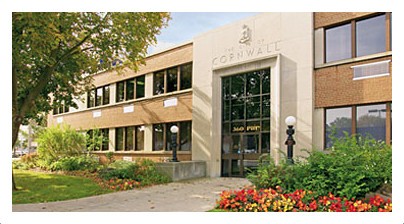No products in the cart.
City of Cornwall declares May 5-11 as Emergency Preparedness Week
 Mayor Bob Kilger and City Council has declared May 5 to 11, 2013 as Emergency Preparedness Week in order to draw attention to the need for residents to be prepared.
Mayor Bob Kilger and City Council has declared May 5 to 11, 2013 as Emergency Preparedness Week in order to draw attention to the need for residents to be prepared.
“Residents should understand the risks and hazards and be prepared in the event of an emergency,” said Bradley Nuttley, Cornwall’s Emergency Management and Community Safety Coordinator. “Simply planning ahead can significantly prepare a person for any emergency.”
All levels of government have an important role to play in emergency preparedness and response, but ultimately emergency preparedness starts with the individual. As such, residents are encouraged to develop a plan to look after themselves for the first 72 hours of an emergency.
“Knowing the risks and developing an emergency plan can help reduce fear and aid in recovery from an emergency situation,” said Mr. Nuttley.
When planning for emergencies, residents should:
• Know the Risks in the Community
Although the consequences of disasters can be similar, knowing the risks specific to your community and your region can help you better prepare.
• Make a Plan
Every household needs an emergency plan. It will help you and your family know what to do when a disaster strikes. Make your own plan and print it out today, keep it handy and practice it.
• Prepare a 72-hour Emergency Kit
Prepare or purchase an emergency kit. An adequate emergency kit helps ensure you and your family are ready to cope independently for at least the first 72 hours of an emergency.
Risks and hazards facing the residents of Cornwall include extreme heat and cold, severe weather like thunderstorms, floods and tornadoes, power outages, hazardous spills or leaks, health related emergencies, civil disorder, fires and water or sewer emergencies. There are many planning tools available to help people look after themselves in the first 72 hours of an emergency and information is available on the City website (www.Cornwall.ca).
Some of the suggested contents of a 72-hour emergency kit include:
• Water – two litres per person per day
• Food that will not spoil, such as canned food, dried foods, etc
• Manual Can Opener
• Flashlight and batteries
• Candles and Matches or Lighter
• Battery-powered or wind-up Radio
• First Aid Kit
• Special items like prescription medications, infant formula and equipment for people with disabilities
• Extra Keys for your car and house
• Copy of your emergency plan and contact information
• Change of clothing and footwear for each person
• Sleeping bag or warm blankets for each person
• A whistle to attract attention
• Garbage Bags for personal sanitation
• Toilet paper and other personal care supplies
• Small fuel-driven stove and fuel (ensure proper ventilation and follow manufacturer’s directions)
Emergency Preparedness Week is a national event that promotes the need for individuals to care for themselves and their families in the first 72 hours of an emergency. It was first introduced in 1996.






